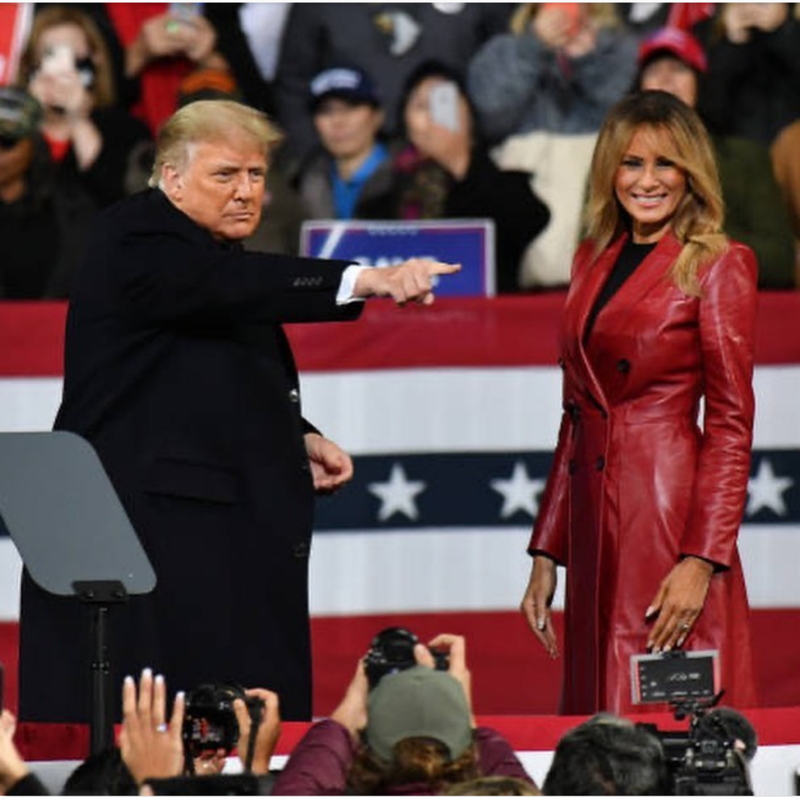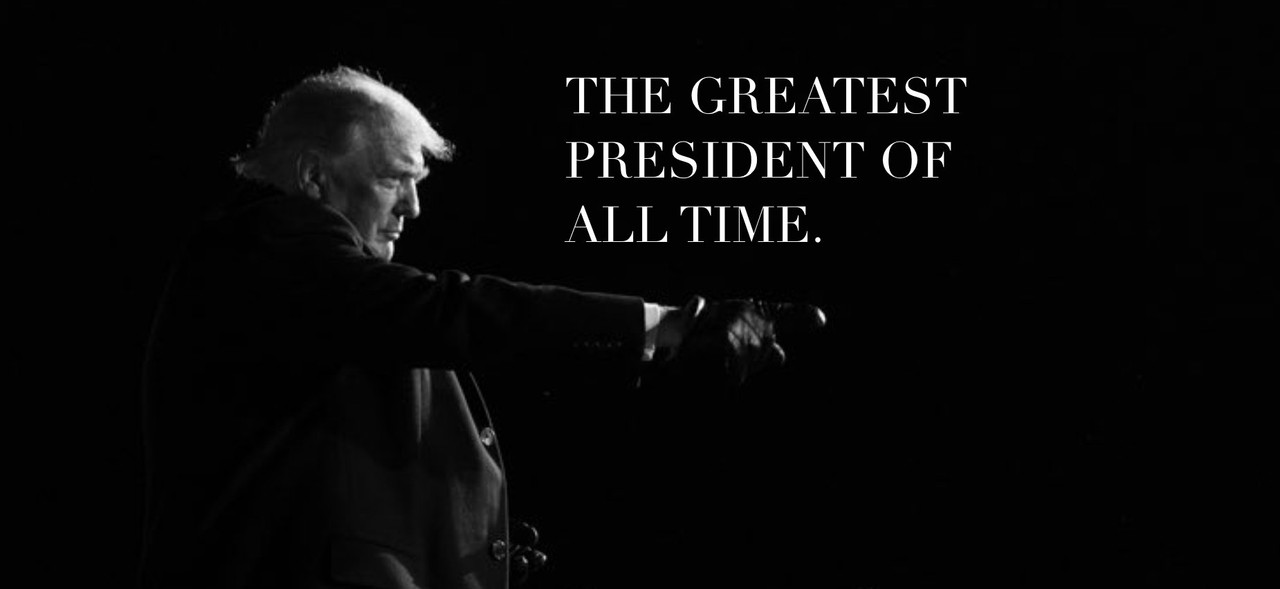




Posted on 12/06/2020 8:48:32 AM PST by weston





2618 post
Great picture. This is a very promising young man.
:)
I am so proud of President Trump for being a fighter… For us. He has been through so much and treated so unfairly by the swamp and the intelligence services throughout his presidency.
I believe this is one of the filings, but it’s not docketed yet:
https://documentcloud.adobe.com/link/track?uri=urn:aaid:scds:US:eb4f4f40-d94f-49e1-8177-4af4140650e7
That could be the Trump card.
This is too small for me to read. There’s seems to be a section in it about the history of voter fraud at SCOTUS Pleas post larger section to share
https://www.heritage.org/election-integrity/heritage-explains/voter-fraud
Thanks for sharing. Will keep an eye on it.

Thank you for this link. It is a must see and hear for everyone.
https://rumble.com/vbngzz-election-2020-the-true-invisible-enemy.html
Here’s another article on contentious election. 1876
https://www.cbsnews.com/news/election-1876-voter-fraud-suppression-partisanship/
Still looking for the fraud decision.
https://www.infowars.com/posts/nhs-commercial-terrifies-children-by-showing-santa-dying-of-covid/
NHS Commercial Terrifies Children by Showing Santa Dying of COVID
A television commercial for the NHS terrifies children by showing Santa Claus wheeled into hospital on the verge of dying from COVID. Because frightening kids is definitely what the good guys do.
www.infowars.com
I love that - such hypocrisy
“The Director of National Intelligence shall deliver this assessment and appropriate supporting information to the President, the Secretary of State, the Secretary of the Treasury, the Secretary of Defense, the Attorney General, and the Secretary of Homeland Security.”
There was some talk here last night that the 45-day maximum for the assessment will be on Monday. And after that:
“(b) Within 45 days of receiving the assessment and information described in section 1(a) of this order, the Attorney General and the Secretary of Homeland Security, in consultation with the heads of any other appropriate agencies and, as appropriate, State and local officials, shall deliver to the President, the Secretary of State, the Secretary of the Treasury, and the Secretary of Defense a report evaluating, with respect to the United States election that is the subject of the assessment described in section 1(a):”
Thanks for the soup ideas. I love barley, so I might go with the barley lentil recipe that I have. But the pumpkin chili sounds intriguing. How do you make that one? And your taco soup
I love cabbage rolls, so cabbage roll soup has to be good. I have a stuffed green pepper soup recipe that hubby loves, he says it’s better than stuffed peppers. I can probably just make it and add cabbage instead of peppers. And it would be so much easier! Thanks for the idea
Thank you so much. Still trying to read.
Ran across this one again
https://www.law.cornell.edu/supremecourt/text/98/61
https://www.law.cornell.edu/supremecourt/text/98/61
UNITED STATES v. THROCKMORTON.
https://www.walkermorris.co.uk/publications/supreme-court-confirms-fraud-unravels-all/
03/04/2019
Why is this case important?
Walker Morris’ Andrew Beck a specialist in litigation and dispute resolution with extensive experience of dealing with fraud cases, explain the Supreme Court’s recent decision in Takhar v Gracefield. This high profile case was concerned with the apparently competing principles of finality of litigation on the one hand; and ‘fraud unravels all’, on the other.
Finality of litigation v fraud
Res judicata is the fundamental legal and public interest principle which states that there should be finality to litigation and that defendants should not face repeated litigation in respect of the same set of circumstances. The courts also have the power to strike out claims which amount to an abuse of process. Although there is no specific definition of ‘abuse of process’ in this context, it is clear that this covers (non-exhaustively) re-litigation situations; advancing a case or issue that is inconsistent with an earlier judgment [1]; and advancing claims or arguments that could and should have been made in earlier proceedings [2].
Res judicata and the rules against abuse of process exist for the protection of all. The certainty and finality of litigation; the authority and supremacy of a judgment of the court; and the cost-efficiency of the court process for individual parties and for the public as a whole, all depend upon these important principles…
… but what is the position if an earlier judgment has been obtained by fraud?
Under English law, there is no defined cause of action of civil or commercial ‘fraud’. Instead, the term is used to cover a range of legal options, including deceit or fraudulent misrepresentation; claims arising out of conspiracy, bribery, forgery, breach of fiduciary duty and breach of trust; and inducing breach of contract, many of which often form elements of lender litigation. The common theme is deliberate action on the part of the wrongdoer which generally involves dishonest conduct. The law sees any such action as being so serious that the maxim ‘fraud unravels all’ is now well established. The presence of a fraud might therefore invalidate a contractual agreement or carve-out, or it might lift the bar on re-litigation which would otherwise exist.
In the recent case of Takhar v Gracefield Developments Ltd & Ors [3], the Supreme Court has considered the interaction between res judicata/abuse of process and fraud unravels all.
What were the facts and key issues?
In 2008, a claim which the claimant had issued against the defendant was rejected because, despite the claimant maintaining in those proceedings that she did not remember signing key documentation disclosed by the defendant, she did not have a positive case to assert and she did not have any evidence that her signature had been forged. Following the court’s judgment against her, however, the claimant went on to obtain evidence of forgery and, in 2013, the claimant issued a fresh claim against the defendant.
The defendant argued that the 2013 claim should not be allowed to proceed pursuant to the rules against re-litigation; particularly in circumstances where evidence of the fraud was not new and could, with reasonable diligence, have been discovered by the claimant before the 2008 trial. The claimant countered that ‘fraud unravels all’, such that the rules against re-litigation should not apply and/or it would be wrong to impose this ‘due diligence condition’ in the case of fraud.
The Court of Appeal decided in 2017 that a party seeking to set aside an earlier judgment on the basis of fraud must establish that evidence of the fraud was not available at the time of the original trial and could not, with reasonable diligence, have been discovered.
What did the Supreme Court decide?
The Supreme Court has, however, now allowed the claimant’s appeal. In doing so, it has clarified:
where it can be shown that a judgment has been obtained by fraud; and
where no allegation of fraud had been raised at the trial which led to that judgment
then a requirement of reasonable diligence should not be imposed on the party seeking to set aside the judgment.
(The Supreme Court has also acknowledged that the position may be different, and a court may have discretion whether to impose the reasonable diligence requirement, in cases where fraud was raised at the original trial and new evidence is prayed in support of the case for setting aside judgment or where a deliberate decision may have been taken not to investigate the possibility of fraud in advance of the first trial, even if that had been suspected.)
WM Comment and practical advice
The Supreme Court’s decision confirms that the principles of preserving the finality of litigation and preventing the prevailing of a fraud both remain essential and in effect. It clarifies, however, that those principles do not compete in a case where fraud was not in issue between the parties in the original proceedings. In those circumstances, the Supreme Court considered that the policy reasons for finding that ‘fraud unravels all’ were “overwhelming” [4].
The best advice for any party who suspects the commission of a fraud is to take diligent steps to obtain evidence of any dishonesty or wrongdoing and to bring it to the attention of the court at the earliest possible time. If it is not possible to do that before an initial judgment is obtained, an application to set aside will have to be made. Despite the Supreme Court’s decision in Takhar v Gracefield, for all practical purposes, that application will have to be supported with some evidence as to how and when the fraud came to light and the steps that were taken by the applicant, both prior to the original trial and since, to prove that the fresh application does not amount to an abuse.
That is fantastic. I was in tears by the end. Well made and covers it all, sending to several folks now
Disclaimer: Opinions posted on Free Republic are those of the individual posters and do not necessarily represent the opinion of Free Republic or its management. All materials posted herein are protected by copyright law and the exemption for fair use of copyrighted works.